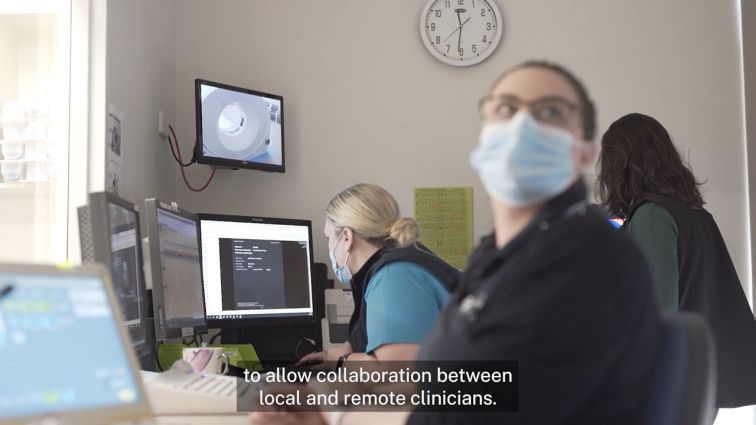Pam Jones: I was a normal, active person and within five minutes, I was not.
Cheryl Hutchinson: Thanks to Telestroke, I got my husband back. I can say that with all honesty.
Nina Fabe: Telestroke and being able to have somebody there who can visualize what's going on with you and have a conversation with you, that is great technology.
Terry Jones: I've been told that with a stroke, if you get at it within three hours you've got a chance. Well, it was, they were there within 3/4 of an hour, and we had this Professor Butcher, who's supposed to be the number one guy, basically at the bedside within half an hour.
Professor Ken Butcher: I like to describe the Telestroke service as a way of leveling the playing field.
Dr Timothy Ang: Telestroke is a virtual model of care to allow collaboration between local and remote clinicians.
Dr Rachel James: Projects like Telestroke, you're not alone, it's just that your team is virtual rather than actually standing there.
Kelly Andersen: Telestroke is amazing and it will change the way that your stroke service runs.
Colin Hutchinson: Doesn't really matter where you are because those neurologists could be in Newcastle or down in Sydney or anywhere. They're at the end of the phone call, and that's where the benefit is really.
Professor Ken Butcher: This has been, from a professional experience perspective, one of the most gratifying things I've ever done in my career.

